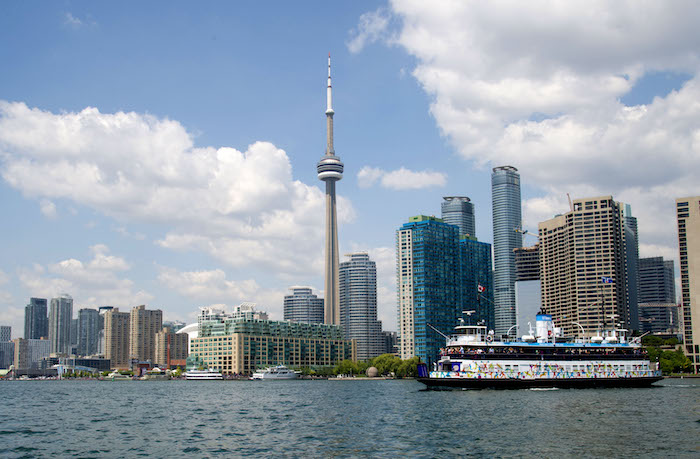
Toronto updates net-zero strategies for new and existing buildings
July 22, 2021
By CCE
Originally introduced in 2010, the Toronto Green Standard is entering Version 4.
On July 14, Toronto’s city council approved a series of plans and strategies to support its ‘TransformTO’ goal of reducing community-wide greenhouse gas (GHG) emissions to net-zero by 2050, including the ‘decarbonization’ of all existing residential, commercial and institutional buildings. And in the shorter term, it updated the Toronto Green Standard (TGS) to achieve net-zero emissions for new buildings by 2030.
The city estimates 60% of its building emissions—stemming from the use of fossil fuels, primarily natural gas, to heat space and water—are residential and 40% are commercial and institutional. Together, homes and buildings account for 55% of the city’s total emissions.
The net-zero strategy for existing buildings aims to accelerate retrofits by supporting workforce development and training, establishing performance targets, expanding retrofit financing, requiring energy and emission audits and tune-ups and streamlining deep retrofit permits and approvals. Following the example of Vancouver, among other cities, Toronto will initially implement voluntary performance measures, then begin to transition to mandatory ones in 2021.
The TGS, originally introduced in 2010, has now been updated to Version 4, which advances requirements for energy and GHG reductions, electric vehicle parking and stormwater runoff management. The city will track emissions embodied in construction materials and aim to reduce urban heat island impacts through extensive green roofs, bioswales, rain gardens, native pollinator species plantings and ‘green streets.’
Version 4 will apply to new development applications beginning May 1, 2022. For city-owned developments, it will require net-zero emissions that same year, as a way for the city to demonstrate leadership.
“While the challenges of transforming how we build, renovate and operate our buildings are massive, so too will be the benefits in terms of our climate, health, economy and resilience,” says John Tory, Toronto’s mayor. “We are committed to working with other orders of government to put in place the supports, standards, regulations and training required to enable this market transformation.”
The city council’s decision requires the enactment of a confirmatory bylaw.
